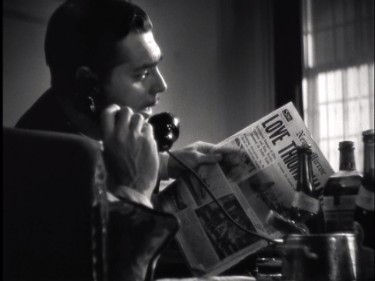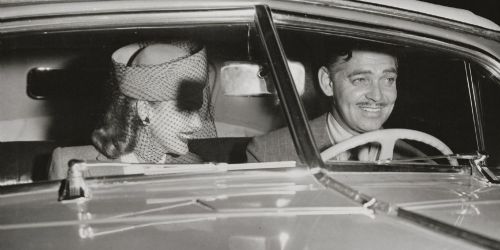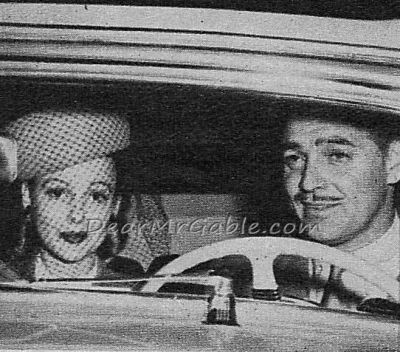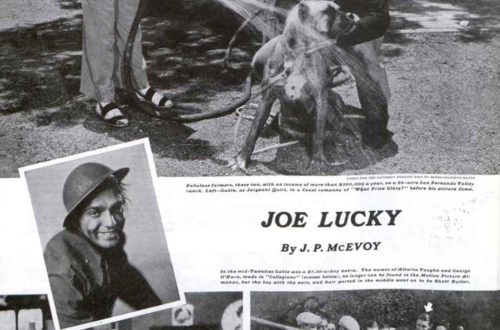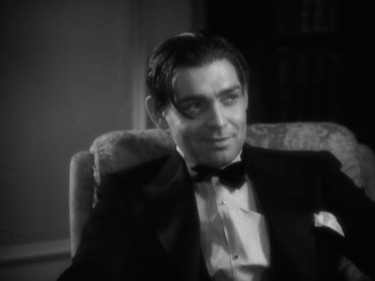
{New Article} 1934: An Open Letter to Clark Gable

This article is one of these “Open Letters” that often appeared in fan magazines of the period; they would be written by fan magazine writer “friends” of the star and then the following month the star would “respond.”
When Laurette Taylor became a big star in Peg O’ My Heart, she noticed that the audiences were not as friendly to her as they had been at the beginning of the play. She complained to her husband, Hartley Manners, author of the play, and asked him why.
“Because,” said Manners, “when you were on the way up you asked your audience to love you. Now that you are on top, you demand that they do.”
I am not saying that applies to you, Clark, but people are talking. They are saying that success has gone to your head. They can’t say that you are slipping for the way the fans mobbed you in New York proves that they still think you’re a swell guy. The thing they don’t like is that you are no longer the love-‘em-and-leave-‘em Clark Gable of old. They are beginning to believe that you have traded your leather jacket and turtle-neck sweaters for a dress suit. They are saying that you are getting fed up with it all and that your work lacks the fire and virility that it formerly had. Perhaps it isn’t true, Clark, but even if it isn’t, it doesn’t do you any good for such talk to get around. That’s why I’m writing you this letter.
I’ve known you a long time. I’ve written a lot of stories about you and you’ve always been a good egg. You’ve come a long way, Clark, since you played the heavy in The Painted Desert. It’s been fun watching you grow. I hate to see you spoil it all now by giving up mulligan stew for caviar. Perhaps even you don’t realize how far you have come. Your former wife, Josephine Dillon, once said of you,
“When I first knew Clark Gable all he needed was a toothpick behind his ear, a gold tooth and a celluloid collar to make him a perfect hick.”
I don’t believe you were that bad, Clark, for by that time the rubber factory, the oil fields and the lumber camps were behind you. You had been places and seen things. But no matter how uncouth you may have been, there has always been a fine streak underneath. Josephine Dillon did a lot for you and so did Lillian Albertson, who got you your role in The Last Mile.
This is all fluff. Please reassure your fans, Clark, that you haven’t gone “high-hat,” that you are still the same Joe Schmoe!
I wonder if you know or realize what you gave these women, Clark? I wonder if you know how many thousands of starved lives and lonely hearts you entered into, a White Knight in shining armor to lighten the tedium of their days and nights? I wonder if you realize your responsibility to these women and what you would do to them if you took their dreams away?
But the thing that you gave them was Clark Gable. It is Clark Gable they want, the vigorous, virile, menacing Clark Gable of A Free Soul. You reached your utmost height as Ace Wilfong in that picture. That’s the man they want to see again and not a pale imitation in a full dress suit. They don’t want the polished gentleman you threaten to become. Your formula was a dangerous toughness under a thin veneer of self-education and a hastily acquired culture. That Clark Gable thrilled women because every woman was sure that she would not be safe for one minute with him alone.
You threaten to become a gentleman, Clark, and it won’t do. Ace Wilfong has learned to wear tails and dawdle a teacup on his knee. He has bought a string of race horses, developed a bulge in his mental waistline and learned to use the right fork.
This is really small-minded. At this point he’s only been in films for three years and already you’re telling him he needs to play the same part over and over again? Already he’s pigeon-holed into one part? This was one of the main problems of the studio system–you took the parts you were told to take and more times than not that meant playing the same character over and over again with a different name in a different setting. This mindset was the reason Clark was scared to venture outside his comfortable “charming rogue” box. Myrna Loy later said about the failure of their film Parnell, “They were all disappointed because it was different material and they wanted us to keep playing Blackie Norton [Clark’s character in San Francisco] and Nora Charles over and over again.”
You can read more of Clark being scolded in The Article Archive.
And Clark’s response coming up tomorrow.
